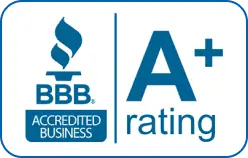Some Business Valuation Facts
- Most business owners have no idea what the business is actually worth.
- Most business owners over or undervalue their business by at least 50%.
- A properly completed business valuation can establish the fair market value of the business for tax purposes.
- An accurate business valuation is a crucial in determining an individual owner’s net worth which is essential for estate planning.
Key Takeaways of The Factors Affecting A Business Valuation In Today’s Market
Most business owners miscalculate their company’s worth by at least 50%, making professional valuation essential.
The IRS recognizes specific factors in determining business value, including earnings history, asset/liability balance, and market comparisons.
A company’s earning capacity and capitalization rate heavily influence its valuation.
Goodwill and intangible assets, such as reputation, play a significant role in overall value.
Choosing the right valuation method depends on industry conditions and should be guided by a CPA, tax advisor, or business appraiser.
Most business valuations are based on what the company owns and what the company earns. The Internal Revenue Service (IRS) outlines the acceptable factors for determining the value of any business as follows:
1. The Company’s Earnings and Income History
How long has the company been in business?
What is the growth rate of the company of the last 3, 5 and 10 years?
What are the business’s total assets?
What are the liabilities of the company?
What type of products and services are offered?
2. Comparing the Business to other Similar Businesses
How does the business perform compared to its competitors?
When comparing companies, they must be similar in nature.
When using the comparison approach, the price-earnings, price-book value and price dividend ratios of each corporation should all be identified.
3. What is the Company’s Economic Outlook?
What are the economic trends of the industry?
How does the company rank in terms of its competitors?
What are the realistic growth rates for the company for the next 3, 5 and 10 years?
What are the realistic growth rates for the company over the next few years?
4. What is the Company’s Earning Capacity?
A company’s earning capacity is its average earnings over a five-year period multiplied by a capitalization rate.
Capitalization rates vary from industry to industry and change with changing economic conditions.
Capitalization rates are usually based on price earnings ratios of similar publicly traded companies.
5. What is the Book Value of the Stock?
Book value is defines as the company’s assets – liabilities.
Book value business valuation is based on the owner’s equity.
The problem with the book value approach is that accounting records may not accurately reflect the true value of the assets of the business.
6. Goodwill and Other Intangible Values
Goodwill is an excess of net earnings above a reasonable return on the net tangible assets of a business.
Goodwill is based on the earnings capacity of the company.
An example of goodwill is a company’s hard earned reputation.
The best approach to valuing a business should be identified by your CPA, a competent tax advisor or experienced business appraiser. The point of emphasis is that a proper business valuation is crucial to planning for both business succession as well as the estate planning of the company’s owners.
Only after an accurate fair market value for the business is determined can the needs of the company and its shareholders be identified.
trusted by 5,000+ clients
Compare Exit planning Rates
See rates and benefits tailored to your business needs.
Frequently Asked Questions about The Factors Affecting A Businesses Valuation In Today’s Market
What is in a Business Valuation?
A business valuation includes an analysis of the company’s financial performance, assets, liabilities, market position, customer base, and future earning potential. It may also account for intangible factors like brand value, intellectual property, and industry trends.
How Do You Calculate the Valuation of a Business?
The valuation of a business is typically calculated using one or more methods, such as the income approach (based on cash flow or earnings), the market approach (comparing similar businesses), or the asset-based approach (total assets minus liabilities).
How Much is a Business That Makes $1 million a Year Worth?
A business earning $1 million annually could be worth anywhere from $2 million to $5 million or more, depending on its profit margins, growth rate, industry, and risk factors. Multiples vary by sector and financial stability.
How Much Should I Pay for a Business Valuation?
The cost of a business valuation usually ranges from $2,000 to $20,000. The price depends on the complexity of the business, the purpose of the valuation, and the level of detail required.
Conclusion and Summary of The Factors Affecting A Business Valuation In Today’s Market
Understanding business valuation methods is not just a financial exercise, it’s an essential part of planning for the future. Whether you’re preparing for a sale, succession planning, or facing divorce proceedings, having a firm grasp on the valuation process allows business owners to make informed decisions based on fair value rather than assumptions or guesswork. By incorporating factors such as annual sales, projected earnings, and current market value, the company valuation becomes a true reflection of both the tangible and intangible aspects of the business.
A key component in establishing partner ownership is knowing the present value of future earnings. Methods like Discounted Cash Flow allow business owners and investment bankers to estimate future profits based on realistic expectations rather than speculative numbers. These forward-looking calculations are especially useful in scenarios like restructuring partner ownership, preparing for potential buyouts, or negotiating a business’s sale value. A thorough valuation also helps determine the economic value of a business under different market conditions, giving clarity to all parties involved.
In today’s market, no two valuations look the same. Variables like industry outlook, risk, and long-term sustainability all play a part. However, the goal remains constant: a reliable estimate of what the business is worth today and what it might yield in the future. Whether for estate planning, legal proceedings, or strategic growth, a well-documented valuation rooted in the company’s actual numbers and future outlook offers the best chance of a fair and accurate outcome.














